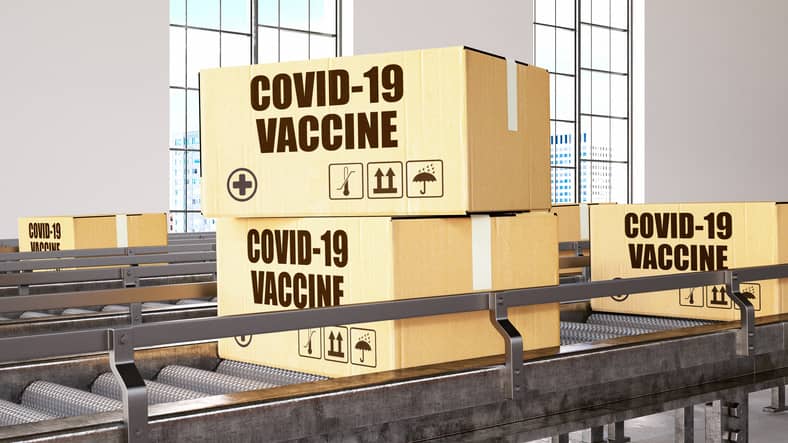Logistics managers are a vital link in an organization’s supply chain as today’s evolving marketplace becomes more competitive and complex. These professionals may be responsible for ensuring the availability of raw materials and supplies for producing goods, and for receiving, storing and shipping finished goods for distribution. Logistics managers optimize the supply chain by establishing strict controls over shipping, receiving and inventory, and will typically communicate with employees at all levels – from top management to production line workers.
Logistics Manager Job Outlook
 According to national data published by the U.S. Bureau of Labor Statistics (BLS), employment for logisticians is projected to grow 7% through 2026. However, since a growing job rate may not guarantee employment in the industry, prospective job seekers are encouraged to conduct independent research regarding actual job growth rates, which can vary according to location, education and experience.
According to national data published by the U.S. Bureau of Labor Statistics (BLS), employment for logisticians is projected to grow 7% through 2026. However, since a growing job rate may not guarantee employment in the industry, prospective job seekers are encouraged to conduct independent research regarding actual job growth rates, which can vary according to location, education and experience.
Potential Salary for Logistics Managers
According to Occupational Outlook Handbook data by the U.S. Bureau of Labor Statistics, the median annual salary for logistics managers was $74,590 in 2017. The lowest 10% earned less than $44,830, while those in the highest 10% bracket earned more than $120,000 per year. Because salary potential may vary depending on location, education, employer and experience, job seekers are encouraged to conduct independent research to determine their actual earning potential.
Typical Logistics Manager Job Duties
Logistics managers are masters of multi-tasking and organization. They ensure that raw materials used in the production of various goods are easily located, and transported efficiently from where they are to where they need to be. Many high-achieving logistics managers rely on the process improvement methodologies of Six Sigma to make sustainable improvements and achieve success in their roles.
Daily tasks may include tracking supplies and materials throughout the supply chain; making sure deliveries and shipments are on schedule; sourcing, contracting with and supervising transportation firms; and developing strategies to reduce costs and increase productivity in warehousing and shipping operations.
Planning, organizing and controlling the flow of resources are important duties for logistics managers. Depending on the industry and employer, some logistics managers might supervise purchasing, as well. Others spearhead the planning process for increasing or decreasing production capacity. These supply chain specialists are also often involved in decision-making that requires strategic thinking, data analysis, and coordinating with department or project managers.
Logistics managers may work in manufacturing firms, retail, wholesale and distribution companies, or for federal, state or local government agencies. They typically work full-time, and overtime may be required.
Education and Training
Educational requirements for logistics managers may vary, according to the size of the company, but most employers hiring for logistics manager positions require at least a bachelor’s degree in management, supply chain or a similar field. Advancing your career possibilities may require additional education, professional certifications or a master’s degree.
Preparing for a logistics manager career can begin with earning a bachelor’s degree in business management or administration, supply chain, economics or a related field. Many employers will require work experience, as well.
Improving efficiency in logistics means a stronger bottom line. Therefore, a demonstrated ability to eliminate waste, such as through knowledge of Lean Six Sigma methodologies, could lead to a big competitive advantage when seeking logistics manager jobs. Training in customer service and sharp knowledge of new technologies could also be beneficial.
Is a Career as a Logistics Manager for You?
If you enjoy a fast-paced work environment and a job where each day is different, you might consider becoming a logistics manager. In addition to the right education and experience, you’ll need to hone your analytical skills, decision-making ability and negotiation skills. You should also possess good judgment, strong organizational math and communication skills, and leadership ability. If this sounds like a good fit for your interests and abilities, start preparing now for an exciting career as a logistics manager.



